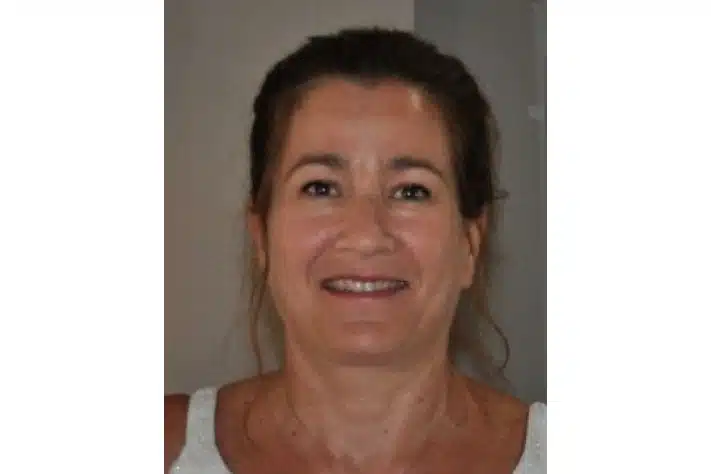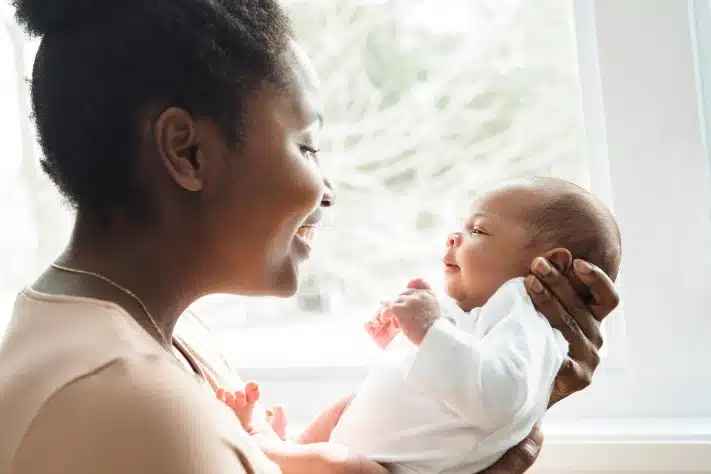13th May 2024
To raise awareness of the importance of the whooping cough (pertussis) vaccination, both in pregnancy and in infants, we are delighted to share this Voices blog by Dr Helen Campbell, Lead Scientist in the Immunisation Division at the UK Health Security Agency (UKHSA).

Dr Helen Campbell, Lead Scientist in the Immunisation Division at the UK Health Security Agency (UKHSA)
I am a lead scientist working for more than 20 years in the Immunisation Division at the UK Health Security Agency (UKHSA). The UKHSA prevents, prepares for and responds to infectious diseases, and environmental hazards, to keep all our communities safe, save lives and protect livelihoods. We provide scientific and operational leadership, working with local, national and international partners to protect the public’s health and build the nation’s health security capability.
Most of you will have seen or heard about recent increases in pertussis (whooping cough) across the country in all age groups after a prolonged period of unusually low disease levels following measures to stop the spread of COVID-19. The main aims of the maternal and infant vaccination programmes are to protect young babies from this disease. This is because babies are most at risk of severe disease, usually require hospital treatment and, unfortunately, sometimes babies with pertussis will die. The latest UK Health Security Agency (UKHSA) data Pertussis epidemiology in England 2024 – GOV.UK (www.gov.uk) shows continuing increases in the number of pertussis cases in England, very sadly leading to 5 infant deaths in the first quarter (January to March) of 2024.

Used with kind permission of UKHSA
Maternal vaccine is the only way that babies can be protected against pertussis from the day they are born until they are old enough to have their own vaccines. All recent infant pertussis deaths in this country have occurred in babies before they are old enough to be fully vaccinated themselves, usually in their early weeks of life.
Women can be vaccinated against pertussis any time in pregnancy from 16 weeks gestation until when they give birth. However, it is best to give the maternal pertussis vaccine between 20-32 weeks gestation to ensure the mother has enough time to respond to the vaccine and for her antibodies to be transferred to the baby across the placenta. Ideally, the vaccine is given after the 18-20-week congenital anomaly scan. This means that, even if a baby is born prematurely, they are likely to have some protection. Studies on mums in England have shown that having vaccine in pregnancy is highly effective (around 90%) at preventing pertussis disease, hospitalisations and deaths in babies. When women are vaccinated only days before giving birth, this may be less effective at protecting their baby. Those who miss the vaccine whilst pregnant can receive the vaccine for up to 8 weeks after they give birth, until their baby is old enough to get their first childhood dose. This will not give the baby maternal antibodies but can help protect the mother from pertussis infection, thereby reducing the risk of exposure for their baby.
Timely vaccination with the infant doses at 8, 12 and 16 weeks is then very important to continue protection in those babies over their early years until their pre-school booster three years later.
Health visitors play a crucial role in discussing vaccinations with parents and caregivers. As a universal service, they reach every family, fostering trust through routine visits, often conducted in the family’s home. It is important that families are given time to ask any questions that they may have about the childhood vaccination programme from a practitioner that they can trust – this is a key aspect of the health visitor’s role. Health visitors can also promote vaccine uptake by checking vaccine status, as well as providing guidance on where and when to obtain them, and addressing any queries they may have. We know that information on vaccination from a trusted healthcare professional is the best way to support parents and pregnant women. Through the trusting relationships that health visitors are able to build with families, they therefore play a vital role in boosting vaccine confidence and in securing the success of the childhood vaccination programme.
If you would like to learn more about pertussis, the UKHSA webinar is still available UKHSA webinar on pertussis – Google Drive.
Vaccination is the single most effective way to protect pregnant women and their babies, infants, children and adults against infectious diseases. The UKHSA publishes an extensive range of free resources on immunisation, for individuals, parents and health professionals.
Dr Helen Campbell, Lead Scientist, Immunisation Division, UKHSA
We are delighted to have UKHSA as our sponsor at our forthcoming Evidence-based Practice Conference, A Healthier Future, taking place on 3 July in Manchester.
Book your place to join us and hear UKHSA’s presentation at the conference sponsor’s breakfast session:


